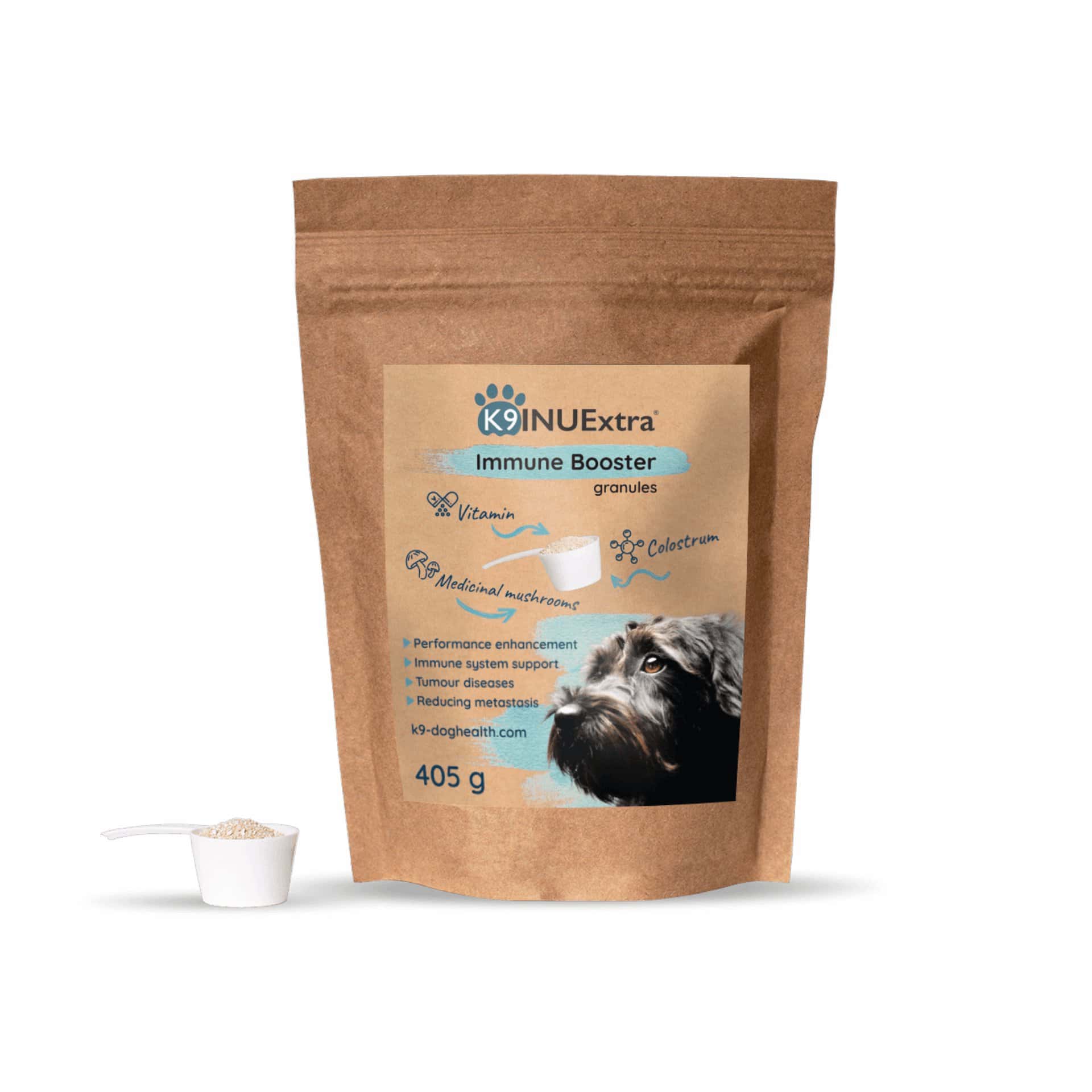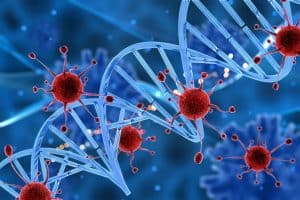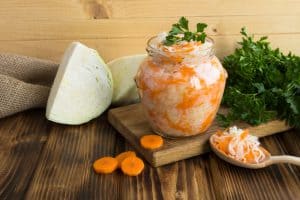Diet for dogs with cancer – every bite matters
When a dog is diagnosed with cancer, the news can be overwhelming. You may immediately think of treatments like surgery, chemotherapy, or radiation. But one of the most powerful tools you have at home is often overlooked: the diet for dogs with cancer.
A carefully tailored canine cancer diet doesn’t just support treatment – it can improve immune function, reduce inflammation, ease side effects, and promote quality of life. And the best part? You can influence this every single day, with every meal you serve.
Why nutrition is so critical for dogs with cancer
Cancer cells are greedy. They consume enormous amounts of energy and nutrients – often stealing them from healthy tissue. This is why many dogs with cancer lose weight, muscle mass, or experience fatigue and digestive issues.
In many cases, it’s not the tumor itself that causes death, but secondary complications like liver or kidney failure. The right nutrition can help prevent or delay these complications, giving your dog a better chance at recovery.
Why carbohydrates aren’t a dog’s best friend
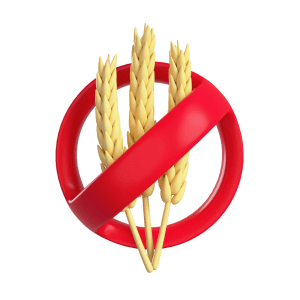
A dog’s natural diet has always been based on meat – and this is especially important when cancer is involved.
Imagine a dog grazing in a rice field. Doesn’t feel natural, does it? That’s because dogs are carnivores, not herbivores. In the wild, they would eat prey animals – including meat, organs, bones, fat, and a small amount of plant matter from stomach contents. Yet most commercial dog foods are based on rice, corn, or wheat – not because they’re healthy, but because they’re cheap and shelf-stable.
So what’s the problem, especially when a dog has cancer?
- A dog’s digestive system is not well equipped to break down grains – they simply don’t produce enough of the enzymes needed.
- Glucose, which is found in grains and other carbohydrate sources, is the primary fuel for cancer cells¹. The more carbohydrates a dog consumes, the more glucose is available for tumor growth.
- Grains can also trigger inflammation, especially in dogs with sensitivities or allergies.
That’s why most experts agree that the ideal diet for dogs with cancer should be grain-free, low in carbohydrates, and rich in high-quality protein and healthy fats.
Protein and fat: building blocks for healing
A dog with cancer has three key biological goals: to resist, to repair, and to rebuild. And for that, the body needs protein and fat – not grains.
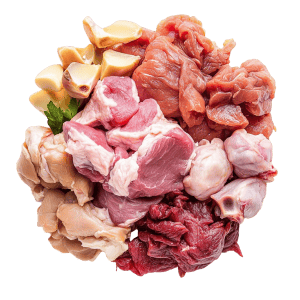
- maintain muscle mass
- regenerate tissues
- support enzyme and hormone production
Fat is just as important – especially omega-3 fatty acids like EPA and DHA. These healthy fats help reduce inflammation, stabilize cell membranes, and may even help inhibit the spread of cancer cells².
Feeding a diet for dogs with cancer that is rich in high-quality, animal-based protein and balanced fats can make a real difference in how your dog feels, heals, and responds to treatment. However, always consult your veterinarian if your dog has liver, kidney, pancreas, or spleen issues, as these conditions may require specific dietary adjustments.
Cooked or raw? Transition gradually
Many experts recommend a raw diet (BARF: Biologically Appropriate Raw Food), but if your dog is used to cooked meals, don’t make sudden changes. Introduce raw elements gradually, meal by meal. Dogs have strong stomach acid, and can handle raw meat, bone, and organs safely.
Sample BARF recipe for dogs with cancer (23 kg / 50 lb active dog, weekly portion)
- 2 kg (4.4 lb) mixed raw ground meat (e.g. chicken, turkey, beef)
- 300 g (10 oz) ground raw meaty bones (e.g. chicken necks)
- 3 eggs
- 1 cup plain yogurt or cottage cheese
- 1 apple
- 2 carrots
- 800 g (1.7 lb) mixed vegetables (e.g. spinach, broccoli, zucchini)
- 1 tsp ground flaxseed or salmon oil
Mix all ingredients, form into patties, freeze, and serve daily. Dogs typically eat 2–4% of their body weight per day, depending on activity level and metabolism.
Natural supplements to support your dog
The role of supplements is twofold: they can strengthen the body’s defenses and help reduce the side effects of treatment.
- Medicinal mushrooms (Reishi, Maitake, Shiitake, Cordyceps) – immunmodulating, cell-protective and antitumor effect3
- Vitamin E (400 IU/day) – antioxidant and cell protector
- Selenium (100 µg/day) – supports immune health
- Decaffeinated green tea extract (50–100 mg/day) – contains polyphenols that may slow tumor growth4
- Grape seed extract, quercetin – flavonoids with anti-inflammatory effects
- Omega-3 EPA/DHA + GLA – anti-inflammatory and membrane-protective
Note: Some antioxidants can interfere with chemotherapy or radiation. Consult your vet before introducing supplements, especially around treatment days.
Conclusion: nutrition is part of the treatment
Feeding a dog with cancer isn’t just about calories. It’s about strategy. It’s about choosing nutrients that support the body’s natural defenses, reduce inflammation, and provide energy for healing – not for tumor growth.
There’s no one-size-fits-all plan, but a thoughtful, natural, and science-based canine cancer diet can offer your dog strength, comfort, and the best possible chance for recovery.
Curious how to make probiotics for your dog at home? Want to learn more about different types of cancer, or how colostrum can support the immune system? And while you’re here – have you ever thought about the deep, unique bond between humans and dogs? Browse our articles to find answers to all your questions. If you’d like to read about daganatos kutya etetése Magyarul, click here.
References
- Seyfried, T. N., & Shelton, L. M. (2010). Cancer as a metabolic disease. Nutrition & Metabolism, 7(7). https://doi.org/10.1186/1743-7075-7-7
- Calder, P. C. (2006). n-3 polyunsaturated fatty acids, inflammation, and inflammatory diseases. Am J Clin Nutr, 83(6 Suppl), 1505S–1519S. https://doi.org/10.1093/ajcn/83.6.1505S
- Vetvicka, V., & Vetvickova, J. (2014). Immune-enhancing effects of Maitake and Shiitake extracts. Journal of Medicinal Food, 17(5), 532–538. https://doi.org/10.1089/jmf.2013.2999
- Yang, C. S., Wang, X., Lu, G., & Picinich, S. C. (2009). Cancer prevention by tea: animal studies and molecular mechanisms. Nat Rev Cancer, 9(6), 429–439. https://doi.org/10.1038/nrc2641
